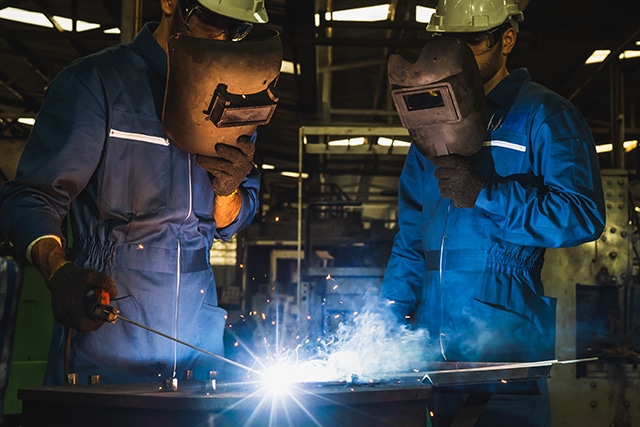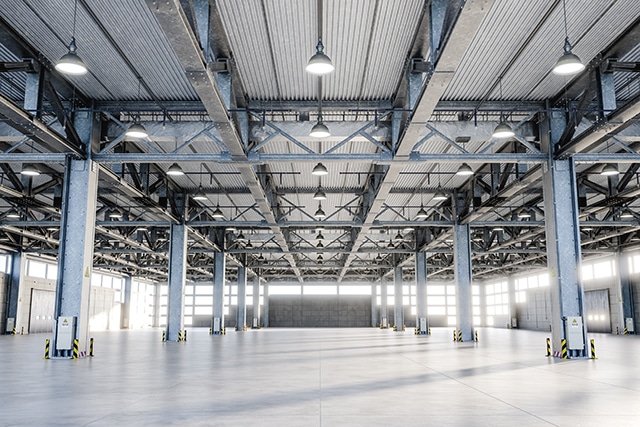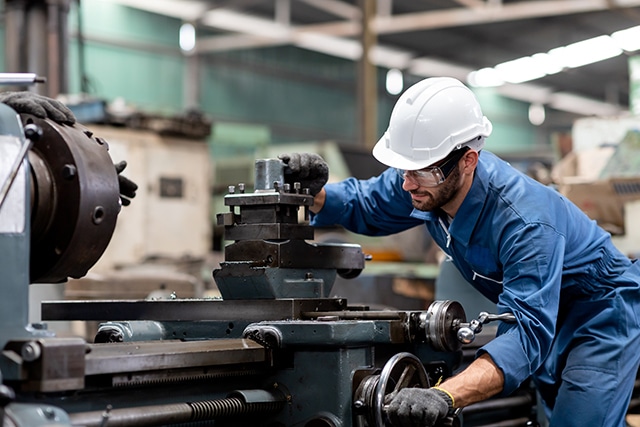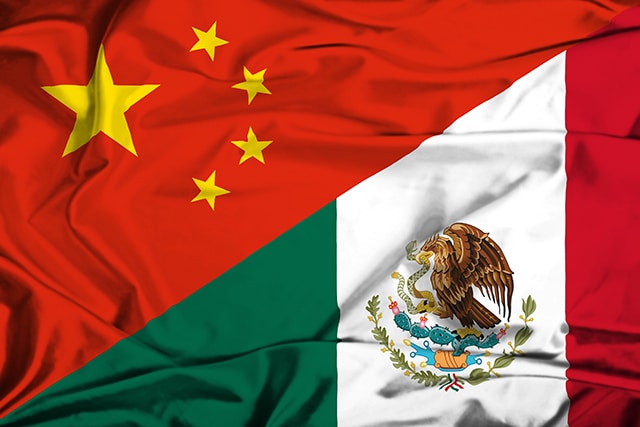 Intellectual property (IP) protection is a concern for any foreign manufacturer. With laws and trade regulations differing from country to country, it’s important to understand that what may protect you in the U.S. may not hold the same weight elsewhere. In fact, concerns regarding China’s failure to protect and enforce IP rights have been one of the key issues between the U.S and China for years.
Intellectual property (IP) protection is a concern for any foreign manufacturer. With laws and trade regulations differing from country to country, it’s important to understand that what may protect you in the U.S. may not hold the same weight elsewhere. In fact, concerns regarding China’s failure to protect and enforce IP rights have been one of the key issues between the U.S and China for years.
Conversely, IP protection for those manufacturing in Mexico has only strengthened over time, particularly with increased commitments addressed in the USMCA. It’s necessary to recognize how crucial IP is to the U.S. economy. Industries that rely on IP support roughly 45 million jobs and 38 percent of the U.S. gross domestic product. As the economy has increasingly moved towards the digital sphere, recognizing and protecting IP has only continued to grow.
In addition to the USMCA and the 11 other free trade agreements Mexico is part of, the country enforces IP protection through a number of agencies, each owning a specific responsibility when it comes to trademark, copyright, and other IP concerns. These government agencies include:
Both the oversight structure and regulations vary from what’s enforceable in the U.S., and it’s up to companies manufacturing in Mexico to understand the differences. Fortunately, a shelter provider shoulders the responsibilities of trade compliance as part of the many services it offers, allowing foreign manufacturers to stay protected when operating under Mexico’s laws.
When the United States, Mexico, and Canada agreed upon a new trade agreement, they updated regulations to meet what’s needed in today’s landscape. The USMCA recently became enforced in July 2020 and highlights several IP rights and enforcement required throughout all three countries.
Chapter 20 of the USMCA covers intellectual property rights and protection at length, highlighting areas such as copyright, trade secrets, and trademarks. It outlines the terms of each provision, specifics of how to ensure effective protection, and how long each protection period lasts. These protocols are in addition to Mexico’s separate IP protection and enforcement.
Understanding intellectual property rights in Mexico can be a complicated matter. However, with the help of an experienced shelter company like IVEMSA, you can begin to understand how different IP laws affect your operation and rest assured that you’re in compliance.
Sources:
https://www.trade.gov/knowledge-product/mexico-trade-agreements
https://www.trade.gov/country-commercial-guides/mexico-protecting-intellectual-property
Among the many advantages of nearshoring to Mexico, particularly when compared to China, is the respect for intellectual property (IP). Trade policy between the U.S. and China has been notoriously shaky over the years, due to the ongoing trade war and the risk associated with IP theft by Chinese companies. According to a 2019 CNBC CFO survey, nearly one-third of North America-based CFOs say they’ve had their IP stolen from Chinese firms at some point over the past decade.

Meanwhile, favorable trade relations between the U.S. and Mexico have been in place since NAFTA and strengthened through the newly enforced United States-Mexico-Canada Agreement (USMCA) in July 2020. The USMCA has the highest standard of any U.S. trade agreement to protect and enforce IP rights. A few of the key highlights as outlined by the Office of the United States Trade Representative (USTR) include:
Under NAFTA, many of these directives were not in place or explicitly detailed. These changes are included with new mandates regarding online piracy and IP protection within a digital environment, which is essential due to rapid innovations in technology in nearly every major manufacturing sector.
Read more: The evolution of Mexico’s intellectual property laws.
IPC president and CEO stated, “The USMCA promises to spur even greater integration among the North American economies and strengthen the region’s stature as a formidable global manufacturing base.”
According to the USTR, the top export categories from Mexico to the U.S. include machinery, electrical machinery, and vehicles. Global management consulting firm McKinsey & Company predicts automotive electronic and software market growth through 2030, increasing from $238 billion to $469 billion, with power electronics reporting an annual growth rate of 15 percent, sensor segments by 8 percent, and electronic control units by 5 percent.
An executive summary published by IBM, detailing a digital transformation in the automotive industry, highlights two key areas where digital IP protection is crucial for the future: connected vehicles and mobility services. The growing number of consumers that expect digital features, such as navigation, security, multimedia, and service diagnostics, to be part of their personal vehicles will lead to product innovation and partnerships between the automotive industry and software, telecommunications, and electronics manufacturers.
Additionally, the trend of mobility services, which provide in-vehicle innovation through smartphone connectivity and integration, which can be moved from vehicle to vehicle, are part of the operational models that guide the new products needed by the automotive industry. Fortunately, the IP protections in place under the USMCA also coincide with the rules of origin laid out in the agreement as well, which requires 75 percent of automotive content to be produced in North America.
The enforcement of the USMCA further incentivizes manufacturers to include Mexico’s nearshore services as part of their strategy. With ongoing research and development necessary to meet evolving consumer expectations, U.S. manufacturers across all sectors will continue to rely on Mexico for the cost-effectiveness and efficiency of its skilled workforce in order to fulfill their production needs during this dynamic era of growth.
As companies decide their best options for expansion, IP protection serves as another factor that pushes Mexico ahead of China in terms of trade relations with the U.S. Although the automotive industry is one of the largest sectors benefiting from the advantages of nearshoring to Mexico, it’s not the only one, since IP protection is essential to all industries, including aerospace, electronics, and medical devices, as technology is developed.
Sources:
https://ustr.gov/sites/default/files/files/Press/fs/USMCA/USMCA_IP.pdf
https://www.ipc.org/news-release/electronics-industry-joins-call-passage-usmca
https://ustr.gov/countries-regions/americas/mexico
https://www.ibm.com/downloads/cas/LVDZDXOA
https://www.trade.gov/knowledge-product/mexico-e-automotive-parts-and-supplies
 Beginning in the early-to-mid ‘90s, the Law of Industrial Property and Federal Copyright Law have covered intellectual property (IP) protection in Mexico. Additionally, U.S. manufacturers have held IP protection under NAFTA with regards to trade with Mexico. Companies will soon experience improvements to these protections through the signed and revised U.S.-Mexico-Canada Agreement or USMCA set to be enforced this year.
Beginning in the early-to-mid ‘90s, the Law of Industrial Property and Federal Copyright Law have covered intellectual property (IP) protection in Mexico. Additionally, U.S. manufacturers have held IP protection under NAFTA with regards to trade with Mexico. Companies will soon experience improvements to these protections through the signed and revised U.S.-Mexico-Canada Agreement or USMCA set to be enforced this year.
When first established, provisions of Mexico’s IP laws initially focused on property rights for inventors. These have now evolved to include the protection of patents, trademarks, trade names, trade secrets, slogans, industrial design, origin identification, and trade names with an emphasis on industrial use cases. As of 2018, Mexico issued updates to its current IP laws to offer even greater protection to businesses.
Among these changes included expanded definitions of design registration law and trademark verbiage to be inclusive of non-visual trademarks. These align with the language of the USMCA trade deal that was signed by all three countries in November of last year and revised the month following.
Entities starting the trademark registration process should expect a timeline of approximately six to eight months in order for the application to be reviewed and accepted under compliance with the country’s set regulations. Approved trademarks in Mexico are valid for ten years from the filing date and can be renewed.
IP protection laws have been modernized to include language and laws protecting digital content and trademarks. As technology and international trade relations continue to expand and evolve, the security of these protections become even more important for all industrial businesses.
When enacted, the USMCA will recognize IP enforcement protocol to include digital property to safeguard data transferred across borders. There are also standards set forth with regards to internet service provider (ISP) protections and updates to trademarks and trade secret provisions.
The revised agreement also sets a new standard for protecting the pirating of digital media, including music, books, and movies. Generally speaking, the USMCA recognizes the importance of specific IP enforcement protocols for copyright or trademark infringements as it pertains to modern classifications of provisions previously outlined.
Mexico’s ever-expanding attention to IP protection, especially in accordance with the trade agreement with the U.S. and Canada, has continued to make it a favorable choice over manufacturing in China where such IP protections do not apply. This advantage, in addition to the ongoing trade war between the U.S. and China, has caused manufacturers to consider moving or at least diversifying their operations to focus on Mexico manufacturing solutions in the near future.
With the enactment of modern laws to include digital protection, new procedures are established to ensure companies have their intellectual property safeguarded. Mexico remains steadfast in enforcing IP protection and limiting infringement through several of the country’s organizations. The Office of the General Attorney, the National Institute of Copyright, and the IMPI (Mexican Institute of Industrial Property) are all agencies that pursue disciplinary action against IP violations.
 For many businesses, their intellectual property is among their most important assets, and it is critical to protect this property, especially when nearshoring in Mexico or manufacturing in other foreign countries. National laws in Mexico are designed to enforce the protection of intellectual property and other technical or proprietary knowledge.
For many businesses, their intellectual property is among their most important assets, and it is critical to protect this property, especially when nearshoring in Mexico or manufacturing in other foreign countries. National laws in Mexico are designed to enforce the protection of intellectual property and other technical or proprietary knowledge.
NAFTA and the new USMCA dictate minimum requirements for intellectual property protection, but the US, Mexico, and Canada have their own laws that exceed these requirements. Mexico’s legal framework, for example, offers express protection for industrial secrets, heavy piracy penalties, and the ability to patent pharmaceuticals.
Here are some basic terms to know about Mexico’s intellectual property laws, as well as the steps businesses can take to protect their intellectual property when manufacturing in Mexico:
A patent can cover any invention, industrial design, or model of an invention and guarantees their exclusive use. Patents in Mexico are authorized by the Patent and Trademark Office and are granted for a set period of time.
The registry is similar to patents but applies directly to utility models or industrial designs.
Mexico’s IP laws don’t strictly define what an invention is, but they do specify things that are not considered inventions, including:
A utility model is an object, tool, device, or utensil that arises from the modification of an existing item. The new object must have more purposes or uses than the original.
An industrial design is any element that is newly created and significantly improves the way of doing any activity. Industrial designs can be drawings or models that are to scale and three-dimensional representations of the new elements.
For businesses looking to obtain patents or register their intellectual property, the process is straightforward. However, it’s important to keep records of all your documentation and be patient.
The IMPI will review all submitted materials and make a determination in about six months.
If you have questions or concerns about protecting your intellectual property in Mexico, working with a shelter provider in Mexico is a great option. Our team can answer all your questions and walk you through the steps needed to register or obtain patents so you can run your manufacturing operations in Mexico with peace of mind. Contact us today to learn more.
Key Takeaways:
In 2025, Mexico reached a record high of USD $21.4 billion in foreign direct investment in the first quarter. This reflects an upward trend over the past four years, which can be attributed to several factors.
Pandemic recovery, trade conflicts with China, and U.S. incentives through the USMCA and other programs have caused many manufacturers to revisit nearshoring to Mexico as a strategy.
And although nearshoring itself may not be an entirely new concept, partnering with a Mexico shelter company may be.
The shelter model is unique to Mexico, allowing U.S. and other foreign manufacturers to limit their risk and liability when launching production while reaping all the benefits.
Though contract manufacturing and setting up production as a standalone entity are available alternatives, most foreign companies choose Mexico shelter manufacturing as their preferred strategy.
In addition to the lowered risk of manufacturing in a foreign country, other main benefits of shelter services include:
Shelter services cover everything manufacturers need for production in Mexico including:
By partnering with Mexico shelter companies, manufacturers maintain full control over their equipment, processes, and intellectual property.
Whereas, those implementing contract manufacturing relinquish oversight and quality control over their production. It’s up to each company to decide what its manufacturing goals require.
Manufacturers new to nearshoring to Mexico may not know exactly where to start. The advantage of working with a shelter company is there’s already local experience and expertise in place to guide the process.
From site selection to hiring qualified industrial workers, a Mexico shelter company handles all administrative responsibilities necessary to launch production. This leaves manufacturers to focus on what they do best.
If you’re considering nearshoring to Mexico, let’s discuss whether shelter services make sense for your business. Our team is here to help you make a seamless transition.
Source:
https://mexiconewsdaily.com/business/foreign-investment-mexico-2025/
Key Takeaways:
Manufacturing in Mexico has been part of an integrated strategy for U.S. and other foreign manufacturers for decades. Its logistically convenient cost-effectiveness has led to USD $36.87 billion in foreign direct investment in 2024, with over half going to the manufacturing sector.
A significant part of what’s factored into this continuous growth is a partnership with a Mexico shelter company. This is particularly true for smaller and medium-sized companies setting up production in Mexico for the first time. They benefit the most from having the local expertise and experience that a shelter company provides.
However, regardless of whether a manufacturer is large or small, shelter services may still be applicable. Key benefits include:
Operating in a foreign country comes with expected challenges. Understanding location-specific rules and regulations and labor laws, as well as navigating cultural differences, can create a steep learning curve.

Mexico shelter companies provide flexible solutions and create a seamless transition for foreign manufacturers setting up production. Their knowledge and insight help manufacturers avoid penalties and find the best facilities, suppliers, and workers to support their production goals.
Mexico shelter manufacturing requires several moving parts, which all must simultaneously be completed in order for production to begin. This includes hiring administrative personnel, applying for permits and certifications, finding a facility, and recruiting qualified industrial labor.
Any of these responsibilities on their own takes several months to complete. However, shelter services cover all of these administrative tasks to get production up and running in three to four months, versus the seven to eight months it typically takes as a standalone entity.
Depending on the nature of production, some manufacturing companies choose contract manufacturing versus working with a Mexico shelter company. The advantage of the shelter solution is manufacturers retain complete control over all their personnel, processes, and intellectual property rights.
Additionally, the shelter model is designed to prepare manufacturers to eventually “graduate” from the program and operate as their own standalone entity if they choose. They receive what they need to get started, and always have the option to stop production or scale as the situation calls for.
In addition to these key benefits, a shelter company also helps manufacturers save on labor, infrastructure, permits, and license fees needed to launch production.
IVEMSA has partnered with manufacturers for the past 40 years, helping them to launch production in Mexico and continue to grow their business.
For information on how to get started with a Mexico shelter company and see if it’s the right fit for your project goals, contact IVEMSA today.
Source:
Article Summary: Want to understand the differences between partnering with a Mexico shelter company and setting up production as a standalone entity? This guide illustrates the risks and rewards of each as well as how to customize shelter services to fit specific production goals.
To set up production in Mexico, U.S. and other foreign manufacturers can either work with a Mexico shelter company or set up a new business entity.
Both have benefits, though many prefer the ease and expertise of partnering with local industry consultants. Here’s a look at the risks vs. rewards of each, and a clear illustration of why the majority decide working with a shelter company is the ideal option.
Risks are involved when manufacturing in any foreign country. However, the advantage of working with a shelter company is that these risks and liabilities are reduced.
Operating under a shelter umbrella means manufacturers are not exposed to legal authorities in Mexico. Whereas, operating as a standalone entity makes manufacturers more susceptible.
Additionally, there is less of a learning curve when working with a shelter company. For instance, with the constant changes in compliance, a new business entity faces the risk of penalties or project delays if they aren’t aware of current rules and regulations.
A shelter company can still assist standalone entities with certain administrative responsibilities to support their production goals.
However, many manufacturers choose to implement the full suite of shelter services to launch production. Either way, both solutions deliver:
A shelter services solution handles all administrative tasks while allowing manufacturers to maintain full control and ownership over all processes and intellectual property rights.
It eliminates the risk of losing quality oversight, commonly associated with contract manufacturing.
A key part of shelter services in Mexico includes handling all permits necessary for production. This includes IMMEX program approval and VAT certification.
The application process takes significantly longer as a standalone entity and can delay valuable tax-saving benefits.
The cost structure of a shelter model is independent of unit prices produced in the factory. Instead, it allows manufacturers to save on infrastructure, administrative labor, and permitting fees.
Compared to the overhead costs of operating as a standalone entity, there’s an estimated savings on administrative costs of 30-35% when working with a shelter. These areas of savings include HR, accounting, and trade compliance, as well as software needed for production.
Another one of the rewards of working with a Mexico shelter partner is a quicker setup, often three to four months from the time of signing a building lease.
While there is not a greater risk linked to launching production as a standalone entity, the timeline can be nearly twice as long, stretching to six to seven months.
Mexico shelter services offer U.S. and other foreign manufacturers a flexible solution when launching production. It’s considered the safest way to do business and allows for the opportunity for companies to eventually “graduate” from the shelter program.
While IVEMSA maintains an average 15-year retention rate for clients, shelter services can be scaled up or down as manufacturing needs and goals change.
Regardless of whether you’re considering setting up your own business entity or want to clarify what’s included when becoming a Mexico shelter partner, we are here to help.
Contact IVEMSA today to learn which solution is best for you.
Article Summary: Evaluating which qualifications, questions, and advantages to consider to decide if partnering with a shelter company makes sense for your production goals when nearshoring to Mexico.
When manufacturing in Mexico, U.S. and other foreign companies can choose to either set up as a standalone entity or partner with a shelter company. Though the majority decide on the latter, it’s important to evaluate whether your specific project and goals are a good fit.
In general, companies in an optimal position to partner with a Mexico shelter company include manufacturers that are:
Other questions to consider are:
Even if a manufacturing company has been successful in the U.S. for years, expanding production in a foreign country is a whole other challenge.
There are separate rules and regulations, cultural norms, and labor trends, all of which differ from what a U.S. or other manufacturer may typically experience.
For those manufacturing in Mexico for the first time, working with a team of industry experts can save time, money, and stress on everything from site selection to hiring industrial labor to maintaining compliance.
However, if you decide that creating a standalone entity is your preferred route, shelter services in Mexico are still applicable in any capacity needed.
Many manufacturers explore contract manufacturing as a solution. While this may be a convenient route, it may not be the most desirable.
Contract manufacturing is typically best suited for companies that don’t require operational oversight or intellectual property protection. This solution is often reserved for companies with low-mix, high-volume products.
Alternatively, manufacturers in the aerospace, automotive, and medical device sectors, and the like, often require customized parts and specialized components, making a Mexico shelter services solution the more ideal fit.
A shelter company handles all the risk, liability, and administrative responsibilities required for production, though the manufacturer maintains full oversight and ownership over processes, intellectual property, and equipment.
Long History of Success
IVEMSA has nearly 40 years of experience consulting with U.S. and other foreign manufacturers and delivering a full suite of shelter services.
Strong Reputation
IVEMSA also maintains a 15-year average customer retention rate, speaking to the success of the shelter-client relationship.
Flexible Solutions
Whether a foreign manufacturer in Mexico needs five employees or 5,000, a shelter company that can customize administrative services to scale up or down quickly is advantageous to achieve production goals.
Trust & Transparency
There is a learning curve when manufacturing in Mexico. Seek a shelter company like IVEMSA that acts as a trusted guide to walk you through every part of the process and provide you with all the information you need, including detailed reports, invoices, permits, and more.
Still not sure if a Mexico shelter company is right for you?
Contact IVEMSA today to get the conversation started – we’ll answer your questions and help you evaluate whether or not it’s an optimal solution.
Reshoring manufacturing to America has been high on the list of priorities for the U.S. administration, particularly following the U.S./China trade war and COVID-19 pandemic. These two events exposed concerns regarding retaliatory tariffs and unreliable supply chains, leaving manufacturers facing extensive and costly production delays.
Furthermore, rising labor rates in China and challenges associated with intellectual property (IP) protection have also led many U.S. manufacturers to bring production closer to home. However, in many cases, this move is easier said than done.
Though the idea of reshoring manufacturing to America is a positive sentiment, research shows there are not enough qualified workers to fulfill the demand. The National Association of Manufacturers shows workforce challenges in the U.S. continue, with more than 71% of manufacturers citing an inability to attract and retain employees as their top challenge as of 2023 Q3.
Additionally, as of December 2023, the Bureau of Labor Statistics reported 601,000 open manufacturing jobs, resulting in a three-month high. Plus, predictions show the U.S. manufacturing industry could see a need for up to 3.8 million jobs over the next decade.
Therefore, in regards to labor and logistics, Mexico manufacturing makes the most viable sense for many.
The industrial labor shortage in the U.S. is due to a combination of factors. The job market is different from what it was a few decades ago. Advances in education and technology have widened job opportunities, and there aren’t as many workers who seek manufacturing as a career path, especially at the rate required to keep pace with the production necessary.
Additionally, an entire generation of industrial workers is retiring, with younger workers unwilling or unqualified to fill the vacant positions. Furthermore, manufacturing in sectors including aerospace, automotive, electronics, and medical devices is complex and requires a specific skill set and experience, which, compared to Mexico’s labor pool, U.S. workers simply don’t have.
There’s been a notable decline in America’s vocational school enrollment since 2017. Meanwhile, Mexico continues to invest in advanced education and training in the manufacturing industry, contributing to a steady pipeline of qualified workers.
Lastly, competitive pay is necessary to recruit and retain employees while managing overall manufacturing costs. Compared to labor rates in Mexico, which start at $6.96 USD for fully burdened, semi-skilled workers, U.S. manufacturers can’t compete and recruit in the same way.
Mexico manufacturing provides an alternative solution for U.S. companies that want to bring production closer to home. The proximity of Mexico to the U.S. market makes it an ideal location, leading to quicker lead times compared to China, plus incentivized trade as part of the USMCA trade bloc.
But perhaps most importantly, there’s access to a highly skilled, cost-competitive industrial workforce that can boost manufacturers’ long-term strategies.
There are several advantages of nearshoring to Mexico, and a shelter services company handles the administrative responsibilities required to set up production, including recruiting, payroll, and retention.
To discuss labor rates in Mexico and get an idea of total costs for your company, contact IVEMSA today.
Sources:
https://nam.org/wp-content/uploads/2024/01/Outlook-Survey-December-2023-Q4.pdf
China manufacturing has been the model U.S. companies have relied on for decades to save on production costs amid rising demand. However, with continuing trade policy uncertainties and the supply chain slowdown during the COVID-19 pandemic, this strategy hasn’t quite rebounded as the go-to option it once was.
While China manufacturing still makes sense for some, the shift toward manufacturing in Mexico has become a bigger part of the conversation. Fortunately, for many, there doesn’t have to be a definitive decision of choosing one location over the other. Manufacturers have seen the value of diversifying production and embracing the advantages both solutions provide.
However, let’s take a closer look at reasons why manufacturers are transitioning manufacturing to Mexico, either as an alternative to China or as an addition, and how a shelter services company can help make the move more seamless.
Tariffs have taken center stage regarding the state of manufacturing. Though nothing is certain when it comes to changes in policy, having a diverse portfolio gives manufacturers more options when there’s disruption in the market.
This was made clear during pandemic times as breakdowns in the supply chain and increasing transportation and labor costs caused manufacturers to rethink their overreliance on China. However, rather than impulsively pull away from production altogether, many have chosen to expand their manufacturing efforts and explore solutions in Mexico.
Mexico has long been a main manufacturing hub. Global companies in the automotive, aerospace, electronics, and medical devices sectors, in particular, have benefited from the close proximity to the U.S. market, a highly skilled labor pool, and the unique advantage of shelter services to meet their growing needs.
For many, the low cost of labor in China has been the biggest incentive for offshore production in previous years. However, between China’s increasing labor rates and costly transportation expenses, nearshoring to Mexico saves manufacturers both time and money.
Additionally, the geographical difference plays a key role in strategy. The proximity of Mexico to the U.S. market makes it an invaluable option, helping manufacturers cut down on lead times, increase transportation options, and gain greater production oversight for business leaders.
Manufacturing has also become increasingly complex as new technology is introduced. Therefore, company leaders are more hesitant to hand over their entire process via contract manufacturing in China. It leaves companies susceptible to intellectual property (IP) infringements and quality assurance challenges.
Alternatively, shelter manufacturing is the safest way to conduct business in Mexico. It allows companies to maintain full control over production and processes as well as ownership over IP, equipment, and materials. Moreover, working with a shelter services company minimizes risk when launching production in a foreign country and optimizes cost savings with a shorter setup time.
Rather than choosing one location over another, exploring more than one option, including manufacturing in Mexico, is where many companies see a viable long-term strategy.
If diversifying your portfolio is part of your production goals, contact IVEMSA to learn how shelter services can serve as a competitive advantage.
The more things change, the more things stay the same – at least when it comes to trade. Though manufacturers are no strangers to navigating the ups and downs of the market, there have already been unrelenting tariff applications (and retractions) in the first six months of 2025.
Yet, the one thing that has remained in place since its onset in 2018 is the trade war between the U.S. and China. This conflict first began during President Trump’s first term in office, and the volatility between the two countries has continued ever since, causing manufacturers to move away from China as a long-term strategy.
This is a significant shift following decades of American companies depending on Chinese manufacturing for its low-cost labor and steady supply chains. However, due to rising tariffs and the derailment of the supply chain infrastructure during the pandemic, manufacturers have begun to lean more heavily on nearshoring to Mexico.
In addition to the need to diversify their portfolios, the official enactment of the U.S.-Mexico-Canada Agreement (USMCA) in 2020 solidified manufacturing in Mexico as the go-to, long-term strategic move.
As a replacement to the pre-existing North American Free Trade Agreement (NAFTA), the tariff-friendly USMCA benefits those within the North American trade bloc and has resulted in a steady increase in U.S. manufacturers moving their operations away from China or at least expanding their presence by also launching production closer to home.
The focus on tariffs has kept manufacturers on their toes as the Trump administration goes back and forth with implementation, though there has been some solace found through the USMCA.
The USMCA eliminates tariffs on qualifying goods for manufacturers in the U.S., Mexico, and Canada. Whereas, there have been additional restrictions on certain components, including semiconductors and automotive parts from China, under President Trump. Add in the ongoing geopolitical tensions and skepticism around technology protection, and many manufacturers are moving away from China as their main hub of manufacturing.
Furthermore, the cheap labor rate China was once known for is steadily increasing and failing to offset Asia’s lengthy and costly shipping timeline, which can take weeks to reach the U.S., compared to a few days, if not same-day, when shipping from Mexico. Thanks to the tariff relief, streamlined customs processes, and enhanced intellectual property protection under the USMCA, manufacturing in Mexico has become a more cost-effective and reliable way to do business for many.
And by working with a shelter services company, U.S. and other foreign manufacturers have expertise on their side to stay current on trade compliance, along with the infrastructure to streamline production setup and save on manufacturing costs.
As part of a comprehensive solution, an experienced shelter services company like IVEMSA can help U.S. manufacturers navigate changes concerning trade and confirm whether their goods qualify under the USMCA.
They can also provide guidance on how to make the type of transformation necessary to meet the rules of origin to avoid the implementation of tariffs. Even in uncertain times, a shelter company can help manufacturers feel confident about their next move.
Questions about tariffs when manufacturing in Mexico? Contact IVEMSA and speak with one of our team members today.
Changes continue to affect manufacturing in Mexico, though the anticipated update regarding Mexico’s IMMEX program may be a welcome one.
In the mid-1960s, the Mexican government created what was then known as the maquiladora program as an incentive to increase foreign direct investment. Approval into the program allows U.S. and other foreign companies to temporarily import goods, materials, and equipment necessary for the manufacturing process without having to pay the 16% value-added tax (VAT), as long as the goods are exported within the required amount of time.
Currently, the government is updating the rules for application, which is intended to make the process quicker and easier to obtain certification. As of now, it can take new entities weeks or even months to be approved and receive the VAT exemption.

While the new ruling has yet to be released, industry experts expect the changes to be rolled out any day. However, because of the overhaul to the IMMEX program, applications and challenges to decisions already in process have been delayed.
Therefore, now more than ever, it’s important to understand the benefits of enlisting the help of a shelter services company, even if you’ve operated in Mexico before.
One of the many advantages of working with a shelter services company is that manufacturers have quicker access to all the necessary licenses and permits needed to operate, including IMMEX program approval and VAT certification.
Exemption from the 16% VAT goes into effect as soon as the extension request of the shelter IMMEX program is approved, representing a significant manufacturing cost savings. Additionally, a shelter services company allows manufacturers to:
Operating under a shelter company is the safest way to manufacture in Mexico. It protects foreign companies from legal exposure and provides a built-in team of trade compliance experts to prepare for and abide by the changing rules regarding tariffs and duties.
Partnering with a shelter company also allows manufacturers to save on administrative and management labor and infrastructure, including HR, accounting, payroll, and daily trade operations. Plus, having the guidance of experienced industry experts helps to reduce the learning curve associated with navigating trade laws and compliance in a foreign country.
Some manufacturers prefer to set up a standalone entity when manufacturing in Mexico. However, most seek the support of a shelter company because of the personnel and processes already in place.
From site selection to recruiting employees, a shelter company handles all of the administrative tasks necessary to get operations up and running in nearly half the time it takes a standalone entity. Furthermore, manufacturers working under a shelter still maintain full control over their production, processes, and intellectual property.
The IMMEX program has benefited U.S. and other foreign manufacturers for decades, and working with a shelter services company like IVEMSA makes obtaining permits and certifications a seamless process, regardless of what changes are in store.
Whether you decide to set up your own entity or want to take advantage of the full scope of services offered, IVEMSA can support your needs every step of the way.
For more information about the IMMEX process or to inquire about manufacturing in Mexico, contact our team today.